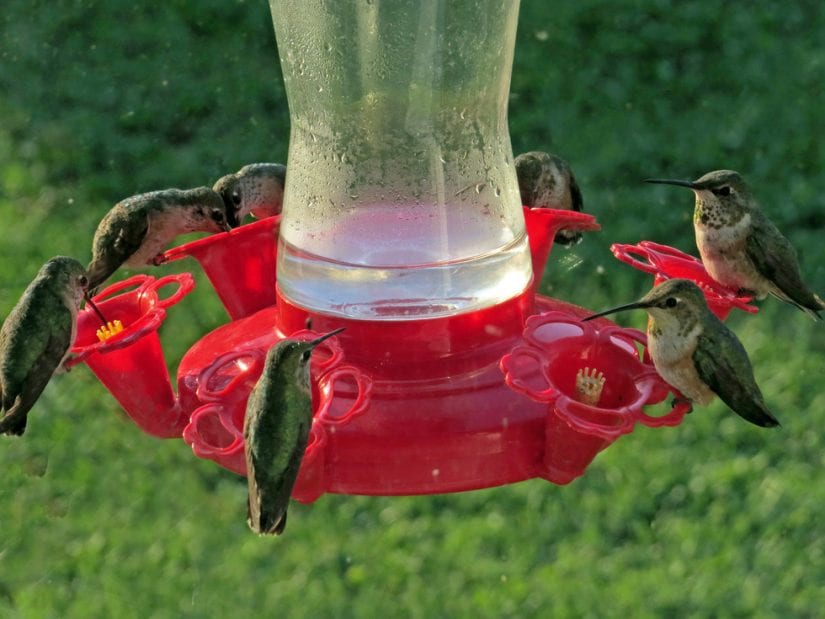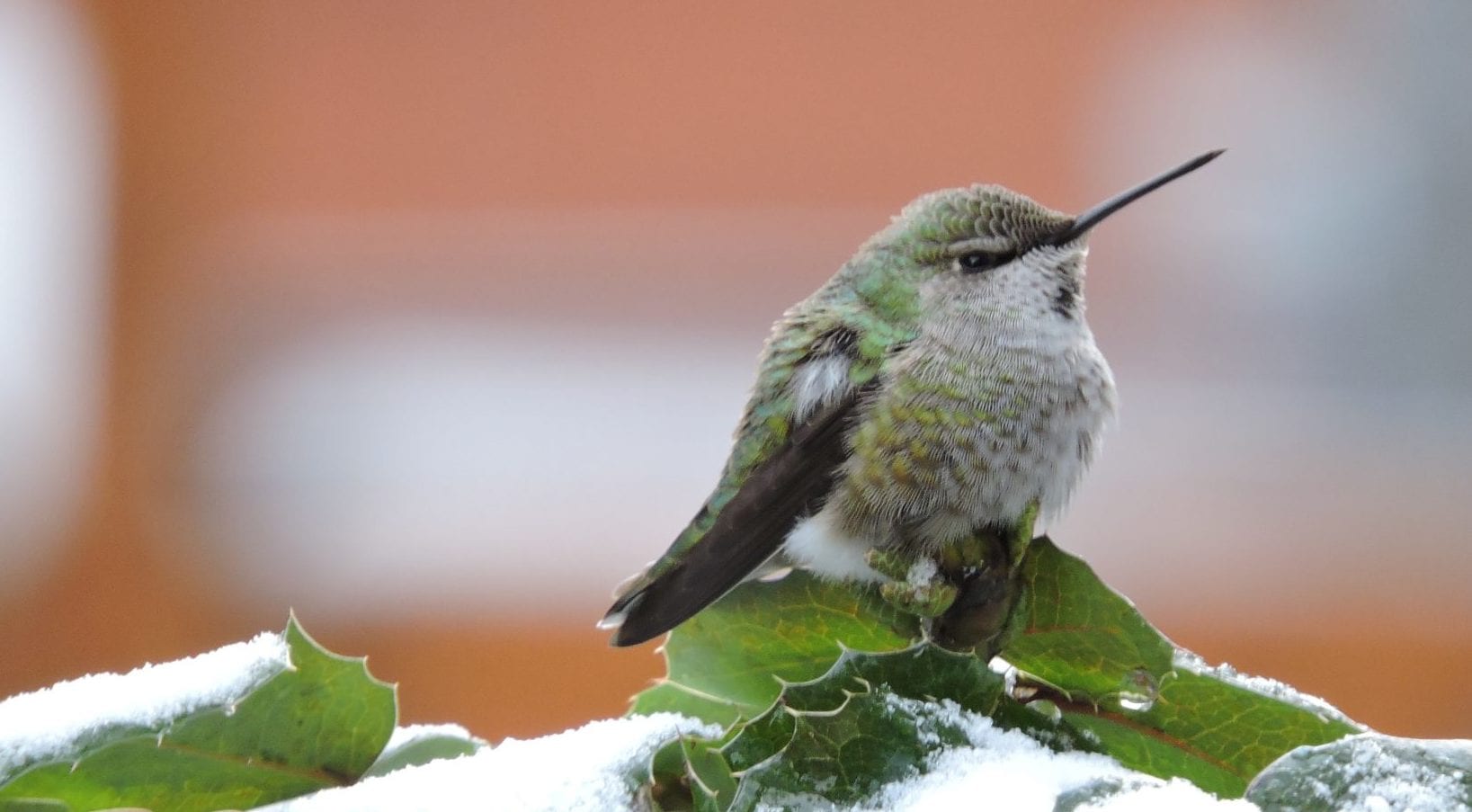Nectar feeders provide a food source for hummingbirds in winter, but they must be cleaned regularly and kept fresh and full. It’s important to take this commitment seriously!
Feeders often attract unusually large numbers of hummingbirds to one area – this can be a joy to watch, but also means any fungus or bacteria in the feeder will affect many birds. These infections can cause their tongues to swell and often result in death, a sad outcome for birds and bird lovers. Feeders that are left empty or left to freeze can also lead to starvation for the birds that have come to rely on them.

If you commit to winter feeding, you must commit fully. Non-migratory hummingbirds may come to rely on this food source and will suffer if it is interrupted. Don’t put hummingbird feeders out if you’re not prepared to clean and maintain them.
If you’re not ready for this serious commitment, bring you nectar feeders in starting in September, before their fall migration. Hummingbirds are smart and adaptable, and this will give them time to find another food source before winter hits.
Clean feeders with a solution of one part white vinegar to four parts water about once a week. Change the nectar solution every few days, ensure it never freezes, and can be provided through the whole winter. Have a friend or neighbour check your feeder if you’re away. In harsh temperatures, you may need to bring your feeder in at night to prevent freezing – this won’t disrupt the hummingbirds if the feeder is put back out first thing in the morning. You might want to keep two feeders handy so you can alternate between them.
To make nectar:
- boil water for two minutes
- mix one part white sugar to four parts water
- allow mixture to cool before filling feeder
- never use honey, sweeteners, molasses, brown or raw sugar
- don’t add red food colouring or other products
While there are many different recipes available online, this is the only one we can recommend, and use at our own Wild Animal Rehabilitation Centre. White sugar is closest to the sugars they find in nature, other types of sugars or recipes could make them sick and die.

Even in winter, do not change the ratio of sugar to water. Adding more sugar may help prevent freezing, but it’s not healthy for these sensitive little birds.
Read more about feeding birds and other wildlife (PDF).
